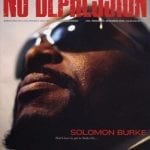Arthur Lee: 1945 to 2006
At the time of his greatest fame, between 1965 and 1968, Arthur Lee was perceived as the musical link between folk-rock and the more sinister stylizations of the Doors. This formulation makes less sense today; Lee was a black man, born in Memphis, who sang in a languid voice that owed as much to Johnny Mathis as to Mick Jagger or Roger McGuinn, and he wrote maddening, elegant songs that sounded like sardonic hipster doubletalk carried along by fat, beautiful swells of the freshest west coast pop.
Although his work got its parsing at the time, Lee hit a little early, and a little lightly, to qualify as a rock legend in the way Hendrix and Morrison have. Yet Lee, who died in Memphis on August 3 at age 61, made a huge contribution to pop music, and if he never quite reclaimed the brilliance of records such as Da Capo and Forever Changes, his small body of first-rate work still invites revision, apart from any lingering historical associations.
Lee was born Arthur Porter Taylor on March 7, 1945; his family moved to Los Angeles when he was 5. He eventually started a group called the LAG’s in tribute to Booker T. & the MG’s, recorded soul instrumentals, and produced a single, for a singer named Rosa Lee Brooks, that featured a young Jimi Hendrix.
Lee was ambitious and adaptable, and he decided to make music that was a self-conscious gloss on the British Invasion rock of the Beatles and the Stones, with all the usages of L.A. pop — Jackie DeShannon songcraft, Byrds guitar, Tijuana Brass horns — echoing in the background. In this, he seems not only an exemplary pop musician, but an exemplary Memphian; like the similarly chameleon-like Alex Chilton, Lee couldn’t help bending to his own purposes what was already a pop lingua franca in need of constant revision.
What resulted were three records by the original Love, which featured the singer and songwriter Bryan Maclean. The self-tilted Love, from 1966, included an inspired, reductionist take on Burt Bacharach & Hal David’s “My Little Red Book”. The following year’s Da Capo remains perhaps rock’s greatest one-sided album: The first six songs managed a late-afternoon, ruminative tone that was punctuated by an atomic bomb explosion on “7 And 7 Is”, and Lee’s lyrics commented on their own inadequacy. The heart of Da Capo was “Que Vida!”, one of pop’s slipperiest songs. Its structure — chromatic and self-mockingly formal — accommodated recondite lyrics (“Or catch a plane to travel/My mind’s not made of gravel”), and his singing managed to be arch and tortured, a combination neither Jagger nor Mathis achieved. In the day’s fashion, however, side two was devoted to a pointless instrumental.
The follow-up, Forever Changes, has risen in critical estimation since its release, and its structures were more ingenious and capacious, and the words creepier and more haunted, than before. Forever Changes stands as an apotheosis of west coast pop, yet it smacks of ruination. At their most energetic, the songs seem to hide away from us.
After that, Lee continued to record, with little success, and it was only in the 1990s that his pop finesse, and what writer Richard Meltzer dubbed Lee’s “post-doper word contraction cuteness,” began to be widely appreciated. In the decade before his death, he served six years in prison for gun and drug charges, toured with a new backing band, and played Forever Changes in its entirety, with full orchestra.
When he learned he had leukemia, he moved back home, and before his passing had gathered around himself a band of young Memphis musicians who were eager to play his classic songs.




